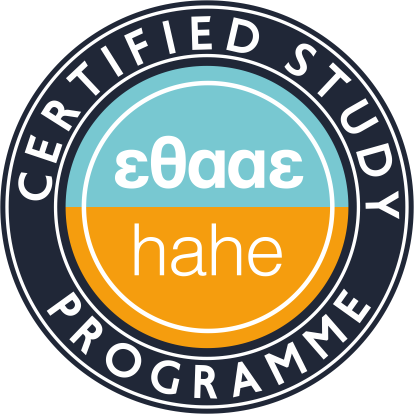Learning with Information and Communication Technologies
Aim. The course has two main objectives: (a) to introduce students to educational software and the learning theories underlying it and (b) to render students capable of organizing instructional and learning contexts through technology use. The course comprises two main components: (a) learning theories and educational software and (b) educational software uses in teaching and learning. The former dimension focuses on various learning traditions and examines how they impact on the design of educational software. The latter emphasizes the development of skills required for the effective incorporation of educational software into the teaching and learning practice.
Learning outcomes: Upon completion, the students are expected to be able to perform the following:
- describe the main categories of educational software
- explain how the various cognitive tranditions have shaped specific educational software categories
- identify the explicit or implicit approach to learning embedded in educational software
- categorize educational software based on the perception of learning it encapsulates
- outline the use of educational software as a cognitive tool
- design an instructional scenario which instrumentally integrates educational software
- reflect on the learning added value of educational software resulting from the implementatijon of the instructional scenario in class
Content. The course aims at the development of students' knowledge and skills regarding educational software. Regarding knowledge, the course involves the familiarization with the various types of educational software as well as the underlying cognitive theories: Behaviorism, Piagetian theory, Cognitive Science, Situated and Distributed Cognition, and Sociocultural Theory. Students are expected to develop a conceptual understanding of a given instructional setting in terms of the learning epistemology adopted. Technology is approached as a cognitive tool and the role it plays in learning is examined.
Regarding skills, the course aims to render students capable of the design, organization, implementation, and evaluation of a curriculum unit using educational software.
Teaching. The course utilizes a number of different instructional methods such as (a) lectures, (b) small group discussions, (c) analysis and discussion of videotaped lessons, (d) lab sessions, and (e) asynchronous on-line assignments (Wiki).
Assessment. The main course deliverables are (a) lesson plans for each type of educational software (25%), (b) participation in the class wiki (50%), and (c) oral exam (25%).
More information about the course is available on the course website: http://eclass.uth.gr/eclass/courses/SEAB169/
